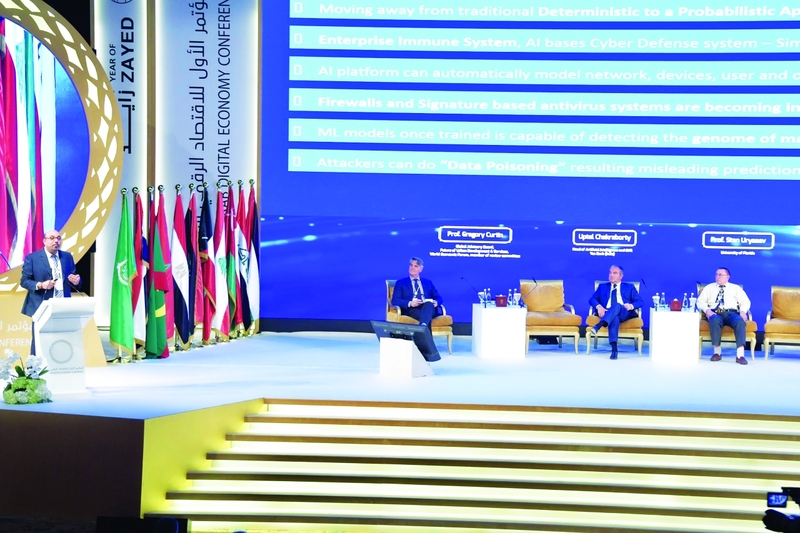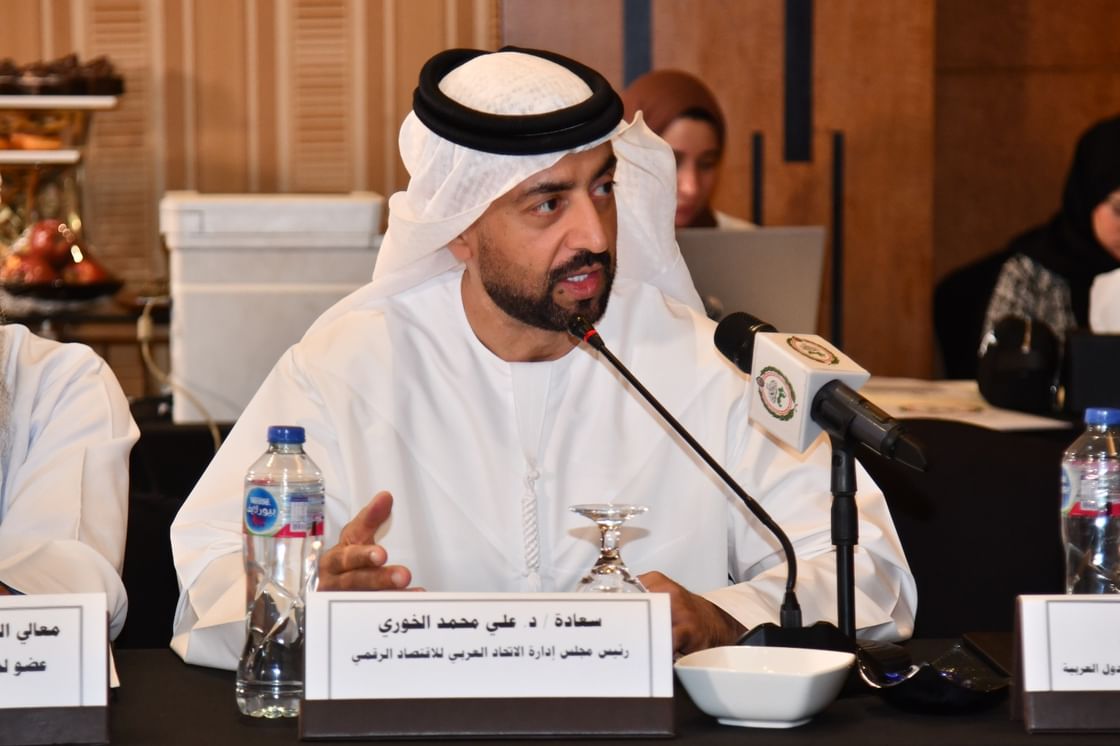Abu Dhabi
Tuesday, December 18, 2018, 2:03 AM
Under the patronage of His Highness Sheikh Mohammed bin Zayed Al Nahyan, Crown Prince of Abu Dhabi and Deputy Supreme Commander of the UAE Armed Forces, the first Arab Digital Economy Conference concluded yesterday in Abu Dhabi. During the conference, a common Arab vision for the digital economy was launched.
Officials told Al Bayan Economic on the sidelines of their participation in the conference: The UAE leads the Arab region in the digital economy, with a share of up to 18%.
This is due to a modern and advanced infrastructure and legislation. They noted that the size of the Arab economy is currently estimated at approximately $2.5 trillion, and this figure is expected to double with the implementation of the digital economy, adding more than $3 trillion over the next ten years.
They stated that the Arab Digital Economy Strategy includes 50 projects scheduled to be implemented over ten years in various Arab countries. Initial estimates indicate that investment in these projects is estimated at approximately $60 billion annually until 2030.
Officials indicated that the Arab region needs to create 60 million jobs over the next ten years, especially since modern technologies will replace 50% of traditional jobs. This poses further challenges for Arab countries in providing job opportunities and training human resources to enable them to deal with digital transformations on the global stage.
Arab Vision
Dr. Eng. Ali Al-Khouri, Advisor to the Council of Arab Economic Unity and Chairman of the Arab Federation for Digital Economy, emphasized that the first edition of the Arab Digital Economy Conference presented a common Arab vision to support the economies of the Arab region, enhance Arab cooperation, and achieve sustainable development goals. He added that this work will be recognized as one of the UAE’s achievements and what the UAE government seeks to provide to the Arab peoples and the world.
Al-Khouri told reporters yesterday that the conference’s recommendations will be presented to Arab leaders during the Arab Summit scheduled to be held in Tunisia in March 2019. He noted that the recommendations addressed important strategic issues related to the development of vital sectors in the Arab region, including industry, agriculture, education, health, and various development sectors.
He stated that the current size of the Arab economy is estimated at approximately $2.5 trillion, and this figure is expected to double, with the digital economy adding approximately $3 trillion over the next ten years if modern technology is utilized in our current Arab economies.
He pointed out that, according to United Nations estimates, the Arab region needs to create 60 million jobs over the next ten years, considering this challenge and other factors that will impact this sector, especially since modern technologies will replace 50% of traditional jobs. This means that we face a major challenge in providing job opportunities and training human resources to deal with the digital transformations on the global stage.
Mega Projects
Hisham Danana, head of the research team for the Arab Digital Economy Strategy, said that the strategy includes 50 projects scheduled to be implemented over ten years in various Arab countries. He noted that the first phase of the Arab Digital Economy Strategy includes the implementation of 10 major projects.
He added that the projects are primarily focused on developing the infrastructure in the Arab telecommunications sector to accelerate the internet and activate inter-regional trade by establishing a unified platform for Arab e-commerce to connect countries. They also include creating a unified platform for government procurement among Arab countries, developing and expanding Arabic content on the internet, and integrating innovation centers and business accelerators.
He pointed out that the first phase represents the main driver of the process of restoring Arab economic and trade cooperation in the coming period. He explained that the project’s cost over 10 years, according to preliminary estimates, reaches $60 billion annually until 2030.
A New Achievement
For his part, Jumaa Al-Abbadi, Ambassador of the Hashemite Kingdom of Jordan to the UAE, said that the launch of the Arab Digital Economy Strategy from the UAE represents a new achievement, adding to the UAE’s successive accomplishments in all fields. He noted that the strategy is a pioneering and creative endeavor that will advance our countries to a higher level of Arab cooperation.
Expertise
Mohammed Osman Elkhosht, President of Cairo University, expressed his happiness with the Arab Digital Economy Strategy, which was prepared at Cairo University and adopted by the Abu Dhabi government until its current launch.
He stated that Cairo University will work in the coming period to provide its experts to monitor the implementation of the strategy and resolve any emerging issues. He noted that Cairo University aims to become an integrated house of expertise and participate in solving Egypt’s concerns and problems.










